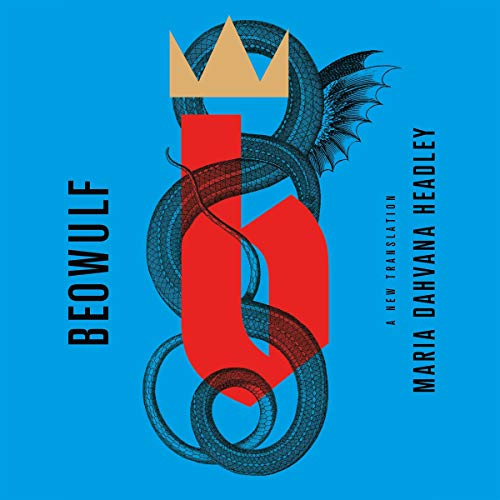el dang (e)k Maria Dahvana Headley(r)en Beowulf liburuaren kritika egin du
How does one review a millenium-old poem?
I guess in two halves. This translation is 97% wonderful, with the other 3% being occasional grating patches. It is the most alive and readable version I've read, and I think the stylistic choices Headley made all make sense, from the repeated exhortations of "bro" to the ways she works to treat the women of the story--especially Grendel's mother, but not only her--better than other translations I've read. Using the techniques of heavy alliteration and kenning compounds with all modern language really brings home how driving they can be, and the originals must have been when their vocabulary was current. Sometimes "bro" and "daddy" felt over-repeated, and then started to grate, but that really is an occasional glitch in a wonderful translation (and I wonder if I'd even have felt that if I'd listened to the poem rather than reading it, or read it more slowly instead of in …
I guess in two halves. This translation is 97% wonderful, with the other 3% being occasional grating patches. It is the most alive and readable version I've read, and I think the stylistic choices Headley made all make sense, from the repeated exhortations of "bro" to the ways she works to treat the women of the story--especially Grendel's mother, but not only her--better than other translations I've read. Using the techniques of heavy alliteration and kenning compounds with all modern language really brings home how driving they can be, and the originals must have been when their vocabulary was current. Sometimes "bro" and "daddy" felt over-repeated, and then started to grate, but that really is an occasional glitch in a wonderful translation (and I wonder if I'd even have felt that if I'd listened to the poem rather than reading it, or read it more slowly instead of in just 2 sittings).
But even in this best translation yet, the story frustrates me. However much Headley tries to open it up, and pushes back on this reading in the translator's introduction, it's still a story of macho men bragging and proving themselves with violence, in which womens' main role is to be prizes and servers. And Grendel's mother still gets short shrift. She's the character whose violence is the easiest to justify, but her role in the story is still to be an enemy whose defeat we cheer for.
It's amazing to be able to read this snapshot from so long ago, and this translation is now the one that I'd recommend to people. But I'm still so ambivalent about the actual content.


